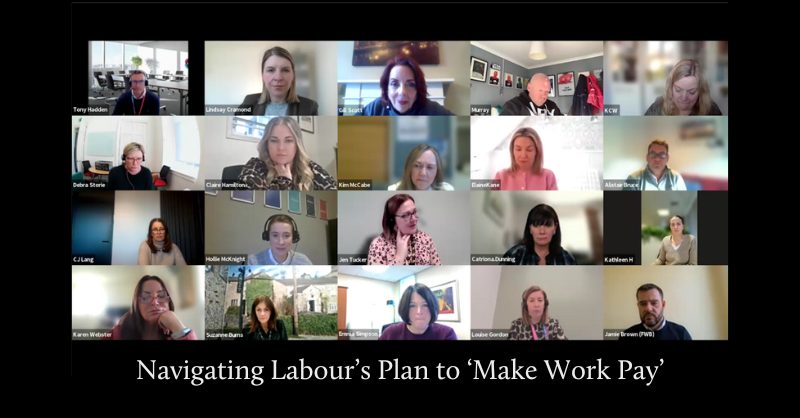Navigating Challenges and Opportunities on the UK’s Path Forward
Last week, FWB co-hosted an Economic Roundtable dinner with the Royal Bank of Scotland, featuring a talk by their Senior Economist, Katerina Lisenkova. The event, held the day after the recent UK budget announcement, provided valuable insights into the economic landscape of both Scotland and the UK, addressing the impacts of the energy crisis, cost of living and key drivers affecting our economy and future investment needed for growth.
Resilience Amidst Challenges:
Despite the challenges posed by the pandemic and the energy crisis, the UK economy demonstrated resilience – Scotland narrowly avoided recession with a 0.2% growth, whilst the overall UK grew by 0.1%. Notably, inflation has been dropping which signals positive developments.
Key Drivers of Inflation:
Katerina highlighted supply chain disruptions, particularly in energy (gas prices), and the Ukraine/Russian war affecting food prices. The risk lies in the varied paces at which components of inflation are moving, with domestic labour market inflation and slightly higher unemployment as concerns.
Labour Market Dynamics:
We discussed the challenges in the labour market at length: wage growth slowing down, underemployment in key sectors, and falling starting salaries. The optimum unemployment figure was identified as 5%, with significant deviations from this leading to either inflation or economic downturn.
Budget Implications:
The recent UK budget announcement raised concerns about its sustainability, with it being deemed suitable for the short term but a potential long-term ticking time bomb. The focus on tax thresholds and commercial tax in an 80% service-based economy led to questions about the UK’s resilience, compared to other EU countries, and its support for manufacturing, particularly in Scotland.
Accelerating Growth Through Productivity:
To counteract the stagnant growth of the past decade, the need for productivity improvement was emphasised. Two key areas were identified:
- AI investment to boost productivity across sectors
- Climate transition – substantial investment in infrastructure to support the UK in meeting its net zero targets
Scotland’s Taxation and Affordability:
The discrepancy in income tax rates between Scotland and the rest of the UK was discussed, questioning the affordability of living in Scotland despite it being perceived as cheaper than London. The example of a “Scotland weighting” to account for high living costs was brought up as a real thing now.
Climate and Environmental Considerations:
The presentation addressed the importance of climate transition, including the need for significant investment and policies to meet carbon budgets. Concerns were raised about the UK’s readiness for a carbon border tax, the progress of ETS (Carbon price), and the societal impact of energy inflation, particularly on electric vehicle (EV) adoption.
Global Race for Sustainable Energy:
The global race for sustainable energy, particularly between the US and China, was highlighted, focusing on the demand for EVs. We touched on the complexities of China’s approach to the sustainability crisis, such as the use of green licence plates, whilst still relying on coal to generate the electricity to power EVs.
Conclusion:
The economic roundtable dinner provided a comprehensive overview of the challenges and opportunities facing the UK and Scotland at present. The need for a balanced approach to economic policies, climate initiatives, and further investment in technology and infrastructure became apparent as the attendees considered the path forward for sustainable and resilient growth.
To express interest in attending future events like this, email Laura at events@fwbparkbrown.com.






